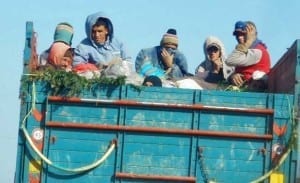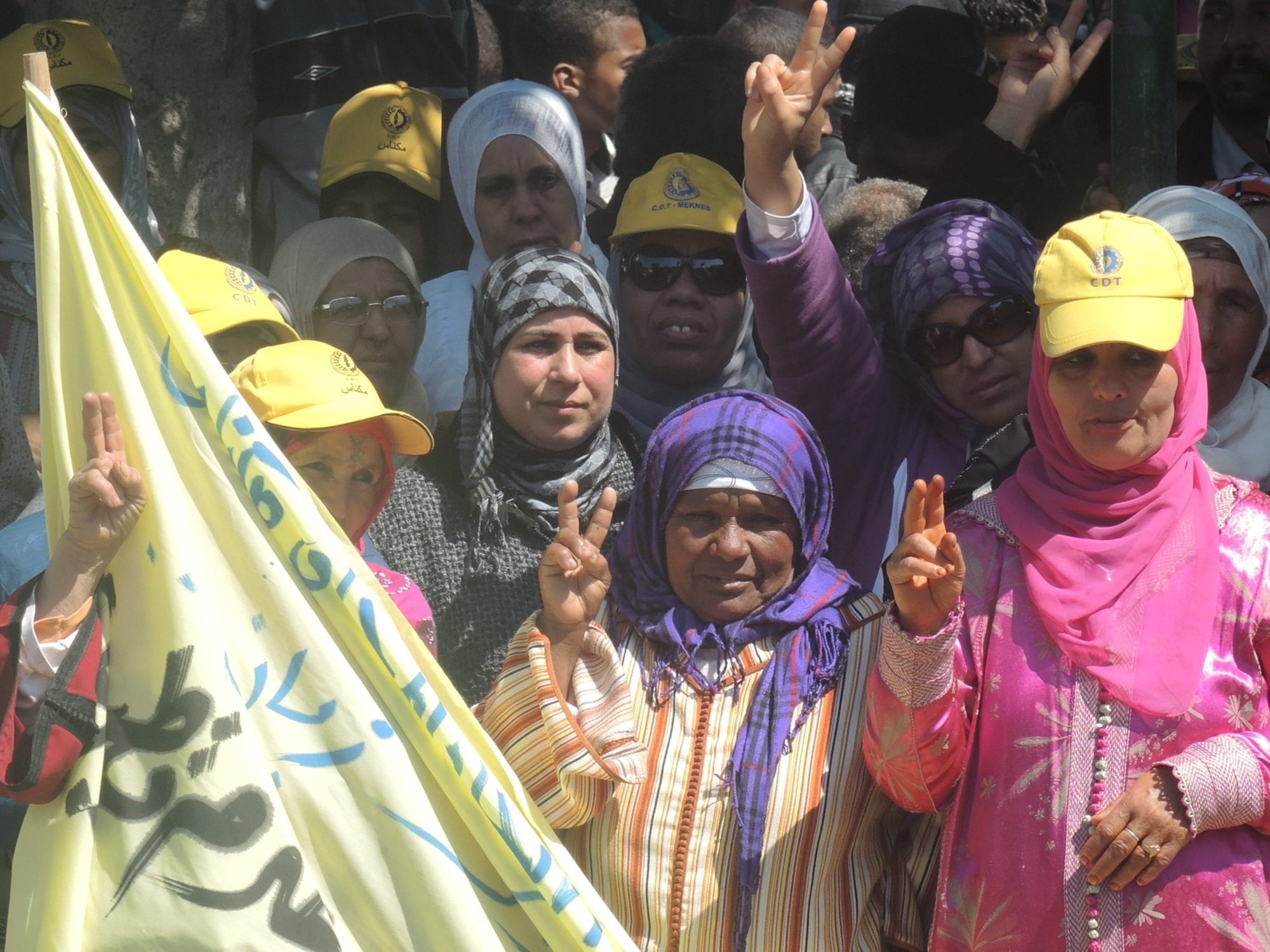Agricultural work remains one of the most dangerous in the world. And women, who comprise between 50 percent and 70 percent of the informal workforce in commercial agriculture, are especially vulnerable to sexual harassment, physical abuse and other forms of gender-based violence at work.

Through gender equality training, Touriya Lahrech has enabled women farm workers to stand up for their rights. Credit: Solidarity Center/Hind Cherrouk
In Morocco, where the Solidarity Center partners with the Democratic Labor Confederation (CDT) to improve worker rights, the first step in addressing gender-based violence in the agricultural sector is enabling women to recognize its detrimental impact, says Touriya Lahrech, coordinator of the CDT’s Women Department and part of its executive board.
When women understand how gender-based violence at work is part of a larger structural system preventing them from attaining better wages and decent working conditions, they can go on “to denounce these kind of practices and exercise their rights,” she says, speaking through a translator.
As the United Nation commemorates November 25 as the Day for the Elimination of Violence against Women, the Solidarity Center and allies throughout the international labor, human and women’s rights communities are working with the International Trade Union Confederation (ITUC) to campaign for an International Labor Organization (ILO) convention to stop violence and harassment at work. (The ITUC campaign toolkit includes talking points, resources and tips for lobbying your government.)
November 25 also launches 16 Days of Activism against Gender-Based Violence Campaign, a time to galvanize action to end violence against women and girls around the world.
Empowered Women Propel Landmark Bargaining Agreement
In Morocco’s fertile fields outside Meknes, some 1,000 agricultural workers on five large farms won a landmark contract in 2015 that boosted wages, provided safety equipment and other fundamental protections. Since then, union leaders have negotiated an extension of the contract to 200 additional workers at another large farm.
The success of the multi-year effort to achieve the agreement stems in large part from the gender equality trainings by CDT and Solidarity Center. Launched in 2007, the trainings enabled women to understand their rights and to take steps to improve their difficult conditions, says Lahrech.

Agriculture workers in Meknes, Morocco, head to work. Credit: Solidarity Center/Hind Cherrouk
The women help determine the issues important to them and also design their trainings, which are conducted through role play because many are illiterate. “The fact that they participate in the design of the role play which builds on their own experiences” is especially meaningful and effective, says Lahrech. Engendering conversation and listening instills participants with the value they deserve, she says.
Lahrech describes how women who initially sat in the back of the room too fearful to speak, have gone on after the trainings to take the microphone at massive rallies on Women’s Day and in CDT meetings where they articulated their rights.
The contract, reached with agro-industry employer, Les Domaines Brahim Zniber, includes first-ever maternity leave, a key demand of the women workers. The contract also is especially important for women because they now have equality with men, says Lahrech. Equality with men means women, who previously were blocked from “male” jobs, like truck driving, now have access to these generally higher paying jobs. “When women can drive trucks, they earn more pay and that is better for everyone,” she says.
Further, the agreement provides employment security for all workers, who had been classified as seasonal and so not eligible for social protections like pensions and health care. The precariousness of agricultural work is compounded by informal employment arrangements driven by the seasons when cash crops are planted and harvested.
Unions Key to Social and Economic Improvements
Lahrech, who also serves as a member of the ITUC’s Women’s Committee and the Arab Trade Union Confederation Women’s Committee, is a long-time union advocate who began working with agricultural workers after she discovered how women in the sector are “at the mercy of the employer, with no social security, no retirement, and in general, not many rights due to the lack of contract.”
Sparked by her participation in student protests, Lahrech made it her life’s goal to effect positive societal change—and soon realized the most effective means to do so is through unions.
“We can’t make the social and economic system change without union involvement,” she says. “When I saw the divide in social classes, I revolted, but I found the frame to challenge this anger—through trade unions.
“Together with others in the union, we share, through solidarity, because things can change with solidarity.”

